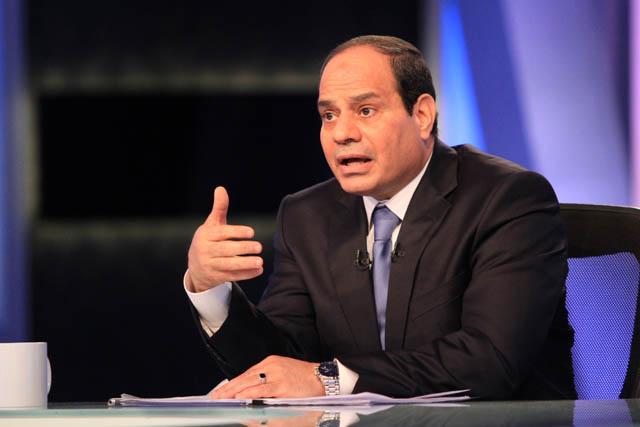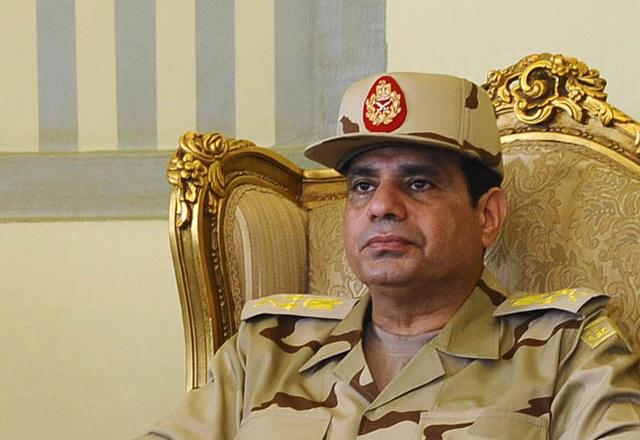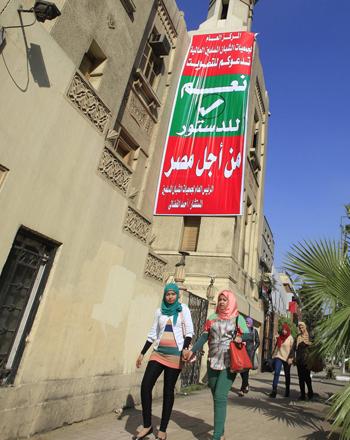You are here
Egypt issues election law; general to quit post
By AFP - Mar 08,2014 - Last updated at Mar 08,2014

CAIRO — Interim Egyptian president Adli Mansour promulgated Saturday a law setting the stage for an election later this year to replace ousted Islamist president Mohamed Morsi.
The election is seen as a major step in a roadmap outlined by the interim authorities after the military deposed Morsi in July.
Army chief Abdel Fattah Al Sisi, who has emerged as Egypt’s most popular political figure, has not yet announced his candidacy but aides say he has decided to stand.
Officials close to Sisi told AFP that he would step down as defence minister after the law was promulgated.
The law sets out the basic qualifications for candidacy and includes a measure criticised in some quarters that make all decisions by the electoral committee before and after the vote final and not subject to appeal.
With the adoption of the law, the electoral committee can now set a date for the election scheduled for this spring, presidential adviser for constitutional matters Ali Awad told a press conference.
It stipulates that presidential candidates be university graduates at least 40 years of age who have completed their military service and have Egyptian parents.
It bans any candidates who have themselves acquired a foreign nationality, or whose parents or spouse have.
It also stipulates that candidates need to secure the signatures of 25,000 voters from 15 provinces to qualify.
And it sets a 20 million Egyptian pounds ($2.8 million, 2 million euros) ceiling for campaign spending ahead of the first round and five million pounds in case of a run-off.
In January, voters approved by 98.1 per cent a new constitution that grants the military extensive powers but lacks much of the Islamist-inspired wording of the 2012 charter adopted under Morsi.
Under the charter, Egypt is to start procedures for parliamentary elections within six months of its adoption.
The decision to ban appeals was taken, in part, to speed up the electoral process given “the nature of the transitional period the country is going through and the security and economic crisis”, Awad added.
More than seven months after Morsi’s overthrow, Egypt remains battered by protests and militant attacks that have damaged its vital tourism industry and scared off investors.
Many Egyptians, weary of the three years of turmoil since the 2011 toppling of strongman Hosni Mubarak, view Sisi as a strong hand who can restore stability.
But the ban on appealing electoral committee decisions has already drawn criticism.
The leftist Popular Current, whose leader Hamdeen Sabahi has already announced his candidacy, was one of the critics.
“The ban gives negative signals regarding the transparency of the election,” the party’s spokesman Emad Hamdy said.
He added that “the president issued the decree without submitting it to a public debate... and political forces have not seen it until now.”
Related Articles
Egypt's ex-army chief and leading presidential candidate Abdel Fattah Al Sisi said Monday the Muslim Brotherhood movement of deposed leader Mohamed Morsi was "finished" in Egypt and would not return if he was elected.
Egyptian army chief Field Marshal Abdel Fattah Al Sisi will keep his post as defence minister in the new government, an official source said on Wednesday, quashing speculation he was about to announce a widely expected bid for the presidency.
In Egypt, it no longer appears to be a question of if, but when army chief Abdel Fattah Al Sisi will declare his candidacy for president.



















